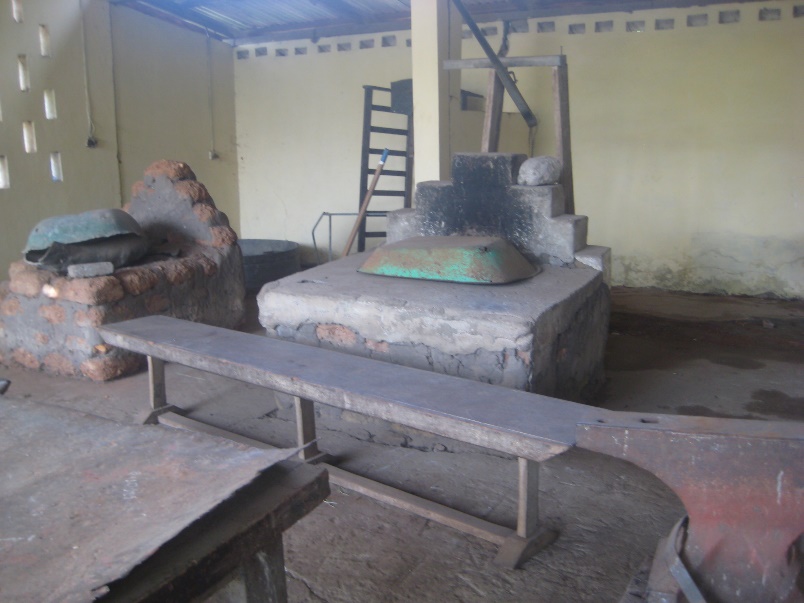· Merge all public technical and vocational institutions under the Ministry of Education.
It is reasonable to think that only education can solve the nation’s myriad of problems. But at this point – looking back from the past 60 years since Ghana’s independence – we must now see that the wrong kind of education actually stunted the growth of developing nations.
From grammar to practical skills
When it comes to technical education in Ghana, for example, our educational elites tend to diminish the importance of carpentry, plumbing, welding, leather works, shoemaking, textiles, and other hands-on skills that have greatly benefited other countries that started off poor like Ghana. But technical education must be elevated through solid scientific approaches for major industries and employment to happen.

It must be remembered that since the advent of secondary and tertiary education in the colonies, the colonial masters never supported the natives to be industrious. The colonial India example is worth remembering: where the traditional weavers had their fingers chopped off to discourage them from weaving their rich tapestries of silk, cloth and carpets, so that the raw cotton could be shipped to Manchester, England, to feed the textile industries there, and the finished products returned to India and the other colonized nations as expensive imports.
Even after Ghana’s independence, in secondary schools, Woodwork scored maximum of 50 points, Art scored 50 points, but Greek, Latin, and Religion scored 100 points each towards our terminal exams. Right there, psychologically, the youth were made to look down on the practical aspects of wood and art, and lose the skills associated with craft.
Today, we still have the nation’s impressionable youth subordinated through impractical academic courses that do not add much substance to themselves or for Ghana’s progress. Not that such various academic “logy’s” (Archeology, Geology, Theology, etc) are not important, but they pale into insignificance considering that meaningful industries for youth employment cannot emanate from them.
The academics have to be reduced in today’s context for worthier practical applications of science through technical education. Science applications for skills are much more useful to develop Ghana by offering employment for the youth.
Such concerns were brooding in my mind when I received a letter from a reader. Slightly edited, it ran as follows:
Practical courses in the formal sector
“I read many of your articles [and] follow your arguments on television. You have a passion to change the educational fortunes of our youth in Ghana. My face is unknown. My voice is unheard and silent. I therefore decided to write this short article to you so that if you consider it fit, you push my arguments a bit higher for me.
“My focus is on technical education that can produce plumbers, mechanics, electricians, carpenters, welders, etc. For example, it is very difficult to find good professional plumbers and auto-mechanics in Accra who understand the modern trends in the housing and auto industry. Practical courses that would have helped people to start off in life a bit more comfortable are left to the informal sector. How could we assert that that technical courses should be left to school drop-outs?
“Why are the Technical Vocational Education and Training (TVET) schools regarded as inferior to the grammarian senior high schools in Ghana? Why are technical schools so under resourced than their senior high school counterparts? Are vocational schools even regarded as second cycle institutions? Can one finish, for example, Biriwa Technical School and get admission to the Polytechnic to read the Higher National Diploma (HND) directly?
Merge and Resource Technical and Vocational Schools
“There seems to be three bodies that regulate technical and vocational education in Ghana; National Vocational and Training Institute (NVTI), Council for Technical and Vocational Education and Training (COTVET), and Youth Leadership and Skills Training Institute (YLSTI). NVTI is an agency under the Ministry of Employment and Labour Relations. COTVET is under the Ministry of Education. YLSTI comes under the Ministry of Youth and Sports.
“Most of the NVTI schools are so under-resourced compared to their peers such as Koforidua Secondary Technical or Ghana Secondary Technical School (GSTS) in Takoradi. Even though COTVET is supposed to be responsible for managing all technical and vocational education in Ghana, few technical schools confirmed with pride that they do not fall under COTVET but rather NVTI. What is the relationship between NVTI, YLSTI, and COTVET? Are these agencies engaging in a power play because they fall under different ministries in government? [Once all three are merged, the administration costs will be reduced considerably.]
“Shouldn’t NVTI schools be part of the Computerised School Selection & Placement System (CSSPS)? Why doesn’t the computerized system place BECE students in vocational and technical schools? Is it because those schools are not under the supervision of Ministry of Education?
“COTVET is getting Funding and was recently granted a loan of $125 million to fund technical education projects in Ghana. How much of these funds were ceded to NVTI to improve the technical equipment and the capacity of Teachers in the NVTI institutions? Is COTVET creating a parallel educational system to the NVTI? A visit to the NVTI and COTVET websites reveal the glaring differences between these two institutions.
NVTI Schools to the Education Ministry?
“Do you think NVTI schools should still remain under the Ministry of Labour or they should be moved to the Education Ministry? Wouldn’t these schools be better off under the Ministry of Education? Should the government be resourcing technical and vocational schools or continue to build senior high schools that only produce grammar students?
“Our Leaders should look at the top level problems again. Education has changed from grammar to skills. People should be multi-skilled in different professions to stay competitive in the future world. We cannot continue to let young adults stay home because they failed in English or Science.”
(Email: anishaffar@gmail.com)


The issues raised are perfectly discussed to the T.Thanks a million Sir.
LikeLike
The issues raised are perfectly discussed to the T.Thanks a million Sir
LikeLike
Thanks Anis for opening this Pandora’s box. The grammar schools, with its focus on exams and certificates, at the expense of skills, values and the entirely of human development, has woefully failed the citizenry. I was surprised to hear the intention to build 200 grammar schools with not even one technical school. Perhaps, the last straw was the wholesale conversion of all polytechnics into technical universities. I know that our last hope to reinvent our education lies in technical education
LikeLike
This is the way if the ministry do not adopt this idea quick that will be a darm shame you got God’s blessing on this.Technical institution is the way for Ghana
LikeLike